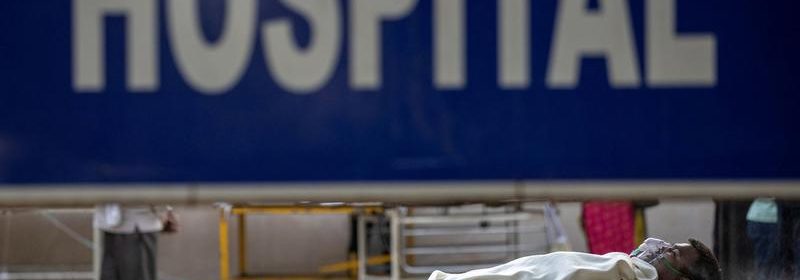Fury as Delhi luxury hotel booked as COVID hospital for court staff

NEW DELHI (Reuters) -Authorities in Delhi ordered a luxury hotel to be converted into a COVID-19 health facility for the exclusive use of high court judges and their families, drawing outrage in a city that has no hospital beds or life-saving oxygen for hundreds of people.
The local government said in a public notice on Monday night that it had received a request from the Delhi High Court because of the rapid rise in coronavirus infections and had reserved 100 rooms at the Ashoka Hotel for the higher judiciary.
The Delhi High court denied it had sought such treatment, and said it would quash the order unless the government modifies it.
“When did we ask for a 100-bed facility at a five-star hotel? We had only said if a judicial officer or a judge or their family is infected, they should get hospital admission,” the high court said.
The notice from the Delhi government had said a top city hospital would run the facility.
“Its unthinkable that we as an institution will want any preferential treatment”, the Delhi High Court said.
The courts comments comes on the heels of criticism by lawyers and citizens.
Jaiveer Shergill, a lawyer and spokesman of the main opposition Congress party, said the government decision flew in the face of the right to equality enshrined in the constitution and the court itself must reject the special treatment.
“For sake of justice, integrity and faith in the judicial system, Delhi’s high Court must quash the order,” he said.
The Indian capital is one of the worst-affected cites in the country’s explosive second wave, with every third person tested for the virus found to be positive.
Hospitals are turning away patients because they don’t have beds or oxygen to keep them alive. The city is reporting an average of one death every four minutes.
Judges have not been listed as front-line workers and most courts are operating virtually.
“The Delhi high court would do well to decline the Ashoka Hotel offer, or cancel it if they ordered it themselves,” said Aakar Patel, a political commentator and former head of Amnesty International India.
“We cannot have open discrimination practiced by those charged with preventing it.”
One government source said rooms were always kept aside for top public figures, including senior judges, at Delhi’s premier state-run All India Institute for Medical Sciences, and reserving a hotel was a case of panic and over-reach.
Others mocked the choice of the state-run Ashoka to take care of the judges and suggested they consider more opulent hotels in the capital.
Source: Read Full Article
